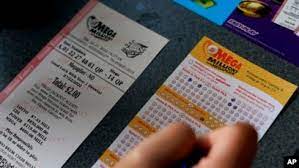
A lottery is a form of gambling in which a prize or prizes are awarded by chance. Lotteries have been around for centuries and are used in many countries. They are often thought of as a way of raising funds for public projects.
In the modern age, there are many different types of lottery. Some involve the distribution of property and other goods as a prize. Others are purely gambling-based. Still others involve the selection of jurors from lists of registered voters.
Some Hongkong Pools also involve the distribution of money to winners as a prize. These can be quite large sums of money. The main difference between a lottery and other forms of gambling is that winning the lottery is not guaranteed, even if you have played for a long time.
The first thing you need to understand about lottery is that there is no such thing as a lucky set of numbers. In fact, you are just as likely to win if you pick “1,2,3,4,5,6” as you are if you choose “4,6,3,7,2”.
While some people believe that their odds of winning the lottery are higher if they live in certain states or territories, this is not true. In fact, if you win the Powerball, you’re just as likely to win in New Jersey or California as you are if you win in Mississippi.
Almost all of the US and Canadian lottery games offer a version of their game known as “Pick Three” or “Pick Four”. This is a cheaper, more convenient option than regular lotto tickets, but it offers slimmer odds of winning.
There are also a few online sites that will let you place bets on the outcome of a particular lottery. These sites will usually charge a fee for their services, but the price is much lower than purchasing the tickets in person or at a convenience store.
Most lottery games use computer technology to select the numbers or symbols that will win the prize. This is because computers are more efficient at generating random numbers than human beings.
In addition, computers are more reliable at determining the number of correct results than human beings. This makes computers a more effective tool for deciding the outcome of a lottery, especially a large one.
The lottery has been a popular way of raising funds for public projects since the earliest times. In colonial America, lotteries were popular ways to raise money for schools, libraries, roads and churches. During the Revolutionary War, the Continental Congress and other government bodies used lotteries to raise money for their military campaigns.
In modern times, the use of lotteries has become a controversial issue. They have been criticized for being a form of gambling, and their huge prizes can lead to addiction. However, despite their criticisms, lotteries are still an important source of revenue for many governments. In addition, they can help to fund public projects like roads, libraries and colleges.

